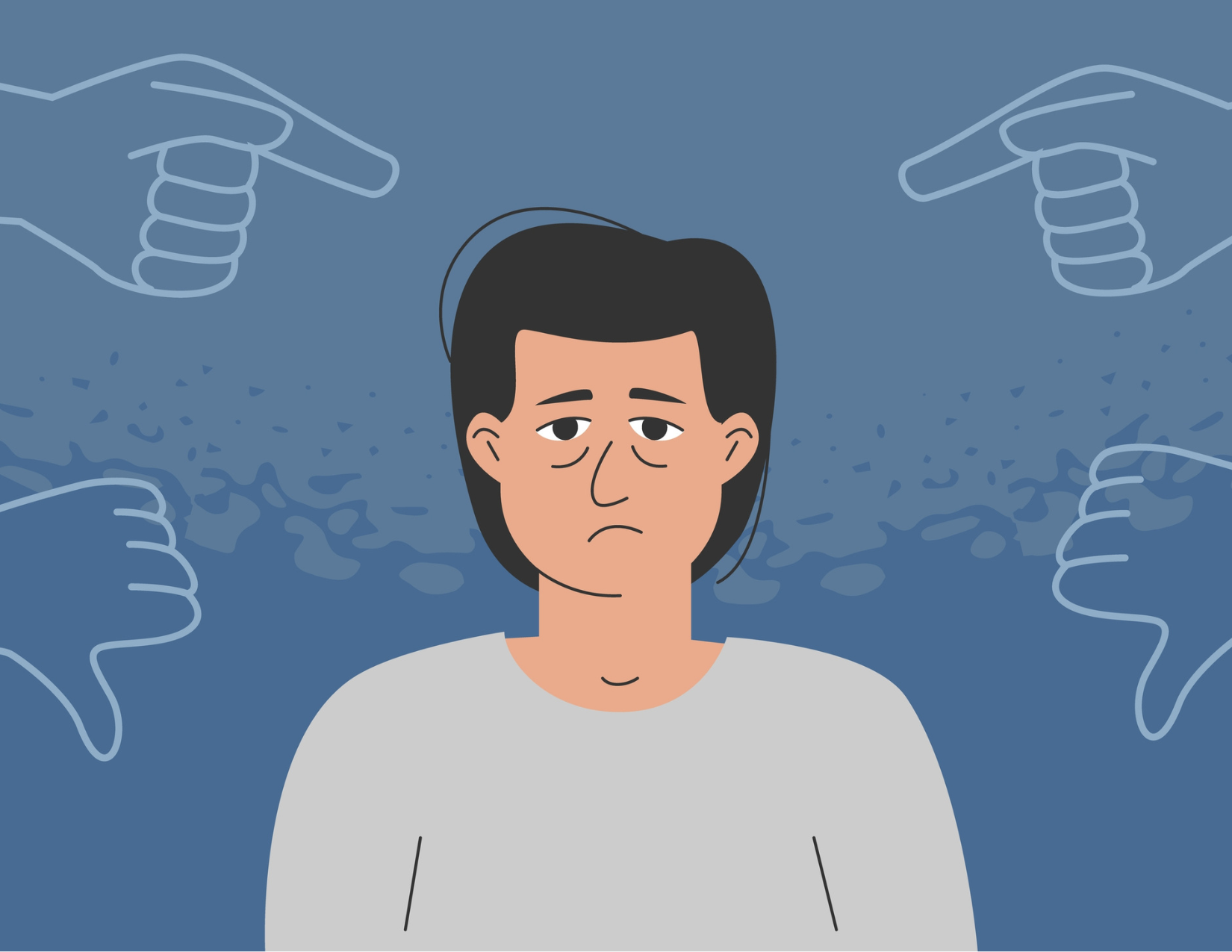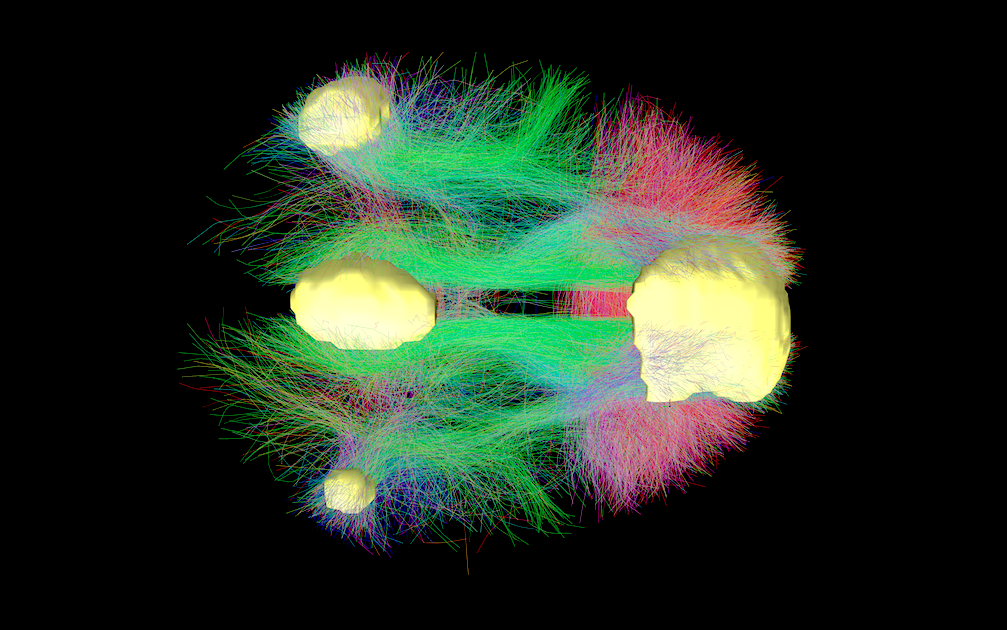
A Critique of Western Psychological Hegemony
For all its strengths, Western psychology falls short when attempting to map the subjectivity of human consciousness within objective, biomedical frameworks. The globalisation of Western psychology not only impedes our understanding of mental illness through a neglect of local understandings and healing traditions, but actively distorts their experience due to the bi-directionality between the prevailing cultural narratives of psychological distress, and its manifestations.

Self-Esteem: The Rational and the Emotional
Self-esteem can be understood as existing on two related but distinct levels: rational self-esteem and emotive self-esteem. The former, evidence-based and logical. The latter, rooted in early experiences and unconscious emotions. Both contribute to our overall sense of self worth, but the emotive is often harder to navigate, but even more important to do so given its capacity to unknowingly contribute to psychological distress.

The Default Mode Network
The Default Mode Network (DMN) is the part of your brain that's active when you’re not focussed on a specific task - think how your mind wanders as you’re brushing your teeth or walking your commute. Its generally involved in daydreaming, self-reflection, envision the future, or understanding other people. Activity in the DMN is related to various neurological conditions, like Alzheimer's, depression, and anxiety. Meditation, or the conscious, non-judgemental engagement with present-moment awareness, has a particularly interesting relationship with the DMN.

Man’s Search For Meaning – Viktor Frankl
Part Holocaust memoir, part spiritual survival guide, Viktor Frankl’s Man’s Search for Meaning is a profound and personal exploration of the eternal resilience of the mind and its ability to transcend the harshest of conditions. Through the exploration of his psyche during and following life in the concentration camps, he reveals the capacity of the mind to find meaning and purpose regardless of life’s inherent sufferings.
Welcome to InPsych
An exploration of mind and self through neuroscience, psychology, spirituality, anecdotal evidence, and self-reflections.
Much valuable knowledge there is out there that is too academic, too abstract, or otherwise inaccessible. Psychology is fascinating, practical, and fundamental. InPsych is how I share.
Read More about what InPsych is.
If you have any psych-related questions ask them here, and I’ll do the research.
How do SSRIs work?
Millions take SSRIs everyday, and they are often the first order in treatments for those with depression, how do they work? Also, why is their name (Selective Serotonin Reuptake Inhibitors) so complicated?
Why do people like being in crowds?
So many of our activities involve crowds: religious ceremonies, festivals, sporting events, protests etc. It’s a good question, why do we like it so much?
What happens when blind people take psychedelics?
Great question. Visual experiences are a significant part of any trip. If you’ve never been able to see then what happens?
How to Keep Your Heart Open in Hell – Ram Dass
Ram Dass, Harvard scholar turned realised being and spiritual leader, played a key role in bringing Eastern spirituality to the West. Here he discusses how one can maintain an open heart, a seemingly impossible task in a world so full of inhumanity and suffering.
The heart’s capacity to love has no boundaries. It can extend beyond culture, race, time, space, species – think of a boundary, and love can cross it. Nice as this is, it also means it has the capacity to feel the immense suffering that is inherent to life. Our mind protects our heart through thoughts – through a web of cognitions that closes the heart off. It saves us from all the horrible realities of life, but, at the same time denies us the capacity to love and to enjoy life’s immense beauty.
To live a life somewhere in-between a blissful denial of the pains of human existence and being detached, isolated, and unloving, Ram Dass encourages you to embrace the polarities of life. Happy, sad – positive, negative – good, evil. The richness of life lies in the underlying unity and tension that connects these dualities. Becoming aware of them, embracing their natural states of conflict, finding peace in this, and learning to love regardless, is how you can keep your heart open in hell.
The mind will seek to rationalise these opposing forces, even to quantify them. Recognise that this is to protect your heart. Acknowledge and appreciate your mind for its caring intention, but remind it that in this instance it needn’t. To appreciate and experience the richness of life, we must learn to be mindful about how our mind guards our heart. This is hard, because letting down our guard requires being vulnerable. When you’ve been hurt by life, being vulnerable is uncomfortable, scary, and unnatural.
I’m trying to learn to unlearn my mind’s protective mechanisms. It’s hard. But I’m so aware that it is within my reach to be able to love in spite of all of life’s pains, and I can’t think of a lovelier ambition to have.
A Critique of Western Psychological Hegemony
For all its strengths, Western psychology falls short when attempting to map the subjectivity of human consciousness within objective, biomedical frameworks. The globalisation of Western psychology not only impedes our understanding of mental illness through a neglect of local understandings and healing traditions, but actively distorts their experience due to the bi-directionality between the prevailing cultural narratives of psychological distress, and its manifestations.
Self-Esteem: The Rational and the Emotional
Self-esteem can be understood as existing on two related but distinct levels: rational self-esteem and emotive self-esteem. The former, evidence-based and logical. The latter, rooted in early experiences and unconscious emotions. Both contribute to our overall sense of self worth, but the emotive is often harder to navigate, but even more important to do so given its capacity to unknowingly contribute to psychological distress.
The Default Mode Network
The Default Mode Network (DMN) is the part of your brain that’s active when you’re not focussed on a specific task – think how your mind wanders as you’re brushing your teeth or walking your commute. Its generally involved in daydreaming, self-reflection, envision the future, or understanding other people. Activity in the DMN is related to various neurological conditions, like Alzheimer’s, depression, and anxiety. Meditation, or the conscious, non-judgemental engagement with present-moment awareness, has a particularly interesting relationship with the DMN.
Man’s Search For Meaning – Viktor Frankl
Part Holocaust memoir, part spiritual survival guide, Viktor Frankl’s Man’s Search for Meaning is a profound and personal exploration of the eternal resilience of the mind and its ability to transcend the harshest of conditions. Through the exploration of his psyche during and following life in the concentration camps, he reveals the capacity of the mind to find meaning and purpose regardless of life’s inherent sufferings.
In the Realm of Hungry Ghosts – Dr. Gabor Maté
This book is a raw, insightful, and deeply human exploration of addiction through the patients of Dr. Maté’s San Francisco clinic. It’s not just a fascinating guide for understanding addiction but represents a transformative understanding of its underlying mechanisms, which he argues are universal, and always rooted in pain.
Existential Psychotherapy
Existential Psychotherapy is a branch of psychoanalysis that utilises the ideas of the existentialist movement of the mid-20th century to guide psychological treatment. In a nutshell, an existential psychotherapist acts as guide and companion on a client’s journey of self-discovery through engagement with the most profound aspects of the human condition, such as meaning, mortality, freedom, or authenticity.
Lisa Barrett’s second book adopts a much more accessible approach to writing, distilling a number of the most important ideas and debates in current neuroscience and psychology. This book is packed with interesting information, anecdotes, and myth-busting, all supported by scientific evidence, and is a fantastic example of how popular science writing should be done.
How Do We See?
How does the brain take visual information and process it so that we can understand what we’re seeing? Current research suggests there are two key pathways, the ventral pathway for object recognition, and the dorsal pathway, for object-motion orientation.
The idea that either sex is smarter than the other has been the subject of scientific and public controversy, historically being used to affirm negative gender stereotypes. But is there really any evidence towards a difference? And if so, why?
Is Weed Bad for the Brain?
The growing debate surrounding the legalisation of cannabis has encouraged research into its long-term effects, although its status as a Class B drug slows scientific progress. This review summarises recent research, finding a negative, but nuanced, association between cannabis use and psychological and behavioural outcomes.
How Does the Brain Store Memories?
Lashley’s principle of mass action, famously derived from lesion experiments on rats, argues that memory is stored in a distributed network across the cortex. This theory faces a lot of criticisms, but offers some important ideas about the distributed and flexible nature of the neurobiological substrates of memory.
The Psychology of Spirituality – Lisa Miller
Lisa Miller discusses her groundbreaking results from studies looking into the relationship between spirituality and mental illness. It was a good read, but I have a few criticisms. I do strongly support her notion of the ‘awakened brain’ and the ways it can help us all to be happier, more fulfilled, and more connected.
How do SSRIs work?
Millions take SSRIs everyday, and they are often the first order in treatments for those with depression, how do they work? Also, why is their name (Selective Serotonin Reuptake Inhibitors) so complicated?
Are Attributional Biases Adaptive?
Attributional biases serve important and interesting roles in maintaining our psychological wellbeing. This seems strange given that they are biases, and as such, tend to deviate from pure logical interpretation.
What have Twin Studies Uncovered about Schizophrenia?
Twin studies offer important methods of psychological analysis. Given that they share either 50% or 100% of DNA, variances in manifestations of particular traits allow for a useful assessment of how environment shapes mental illness.
Panpsychism
Is everything conscious? This is (sort of) what panpsychists believe. This school of thought argues that consciousness is not a uniquely human manifestation of our advanced cognitive evolution, but a ubiquitous and fundamental component of all things in the universe.
Nature or Nurture in the Development of Cognition
When a child’s brain is developing, what plays a greater role, the environment, or the child themself? This is the classic nature vs. nurture debate, this time applied to developmental cognition.
Stereotype Threat – The Power of the Mind’s Hidden Bias
Stereotypes have negative impacts beyond their connection with prejudice and discrimination. They have also been shown to have the power to negatively (or positively) affect the way one’s performance and behaviour.
Why do people like being in crowds?
So many of our activities involve crowds: religious ceremonies, festivals, sporting events, protests etc. It’s a good question, why do we like it so much?
What happens when blind people take psychedelics?
Great question. Visual experiences are a significant part of any trip. If you’ve never been able to see then what happens?
Why Do We Sleep? – Matthew Walker
Why do we sleep for 1/3 of our lives? It seems counterintuitive. During this time we aren’t productive, we’re vulnerable to predators, we can’t sustain our needs. However, there are vital and interesting reasons why we, and all other animals, need sleep.
Dopamine Nation – Dr. Anna Lembke
Why Do We Get Addicted To Things?
Why Don’t People with Addictions Just Stop?
How Can I Find Balance?
When Do We Become Moral?
Lawrence Kohlberg (1927 – 1987) proposed that morality develops in six stages.
According to him, only 10-15% of people reach the final stage.
The Sleeping Beauties – Suzanne O’Sullivan
1. Can Mental Illness be Contagious?
2. Is Western Medical Science Too Obsessed with Clinical Diagnoses?
3. Can Illness Give Voice to the Voiceless
